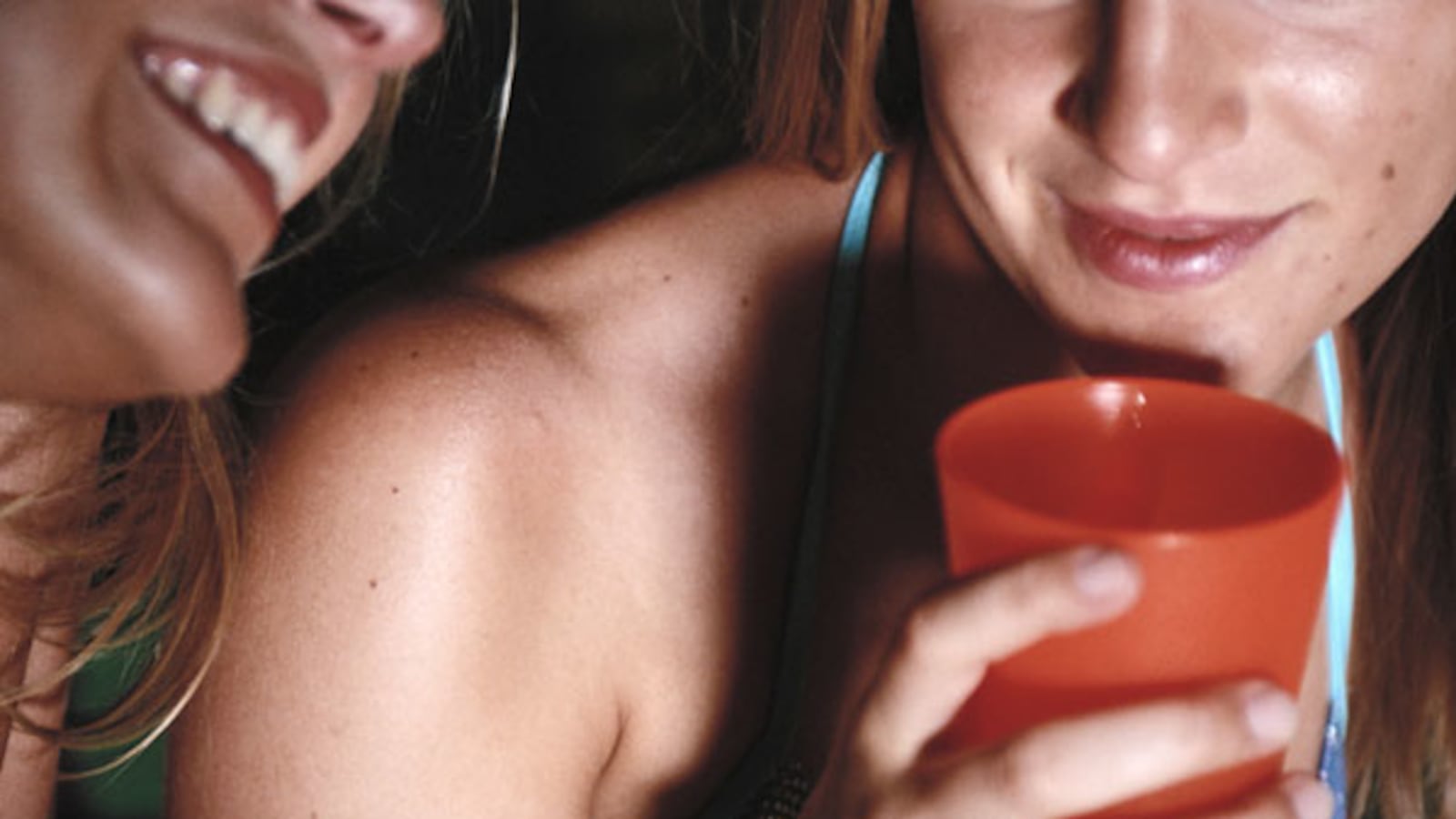Maryland hopes to stop rape by banning “jungle juice.”
A new law that went into effect this month bans the sale of 190-proof grain alcohol such as Everclear. In passing the law, the state has waded into the controversial link between sexual assault and alcohol—and whether putting emphasis on alcohol led to a feel-good measure that bypasses the root causes of sexual violence.
The Everclear embargo—already present in nearby states like Pennsylvania, Virginia, and West Virginia—is targeted at students who consume the drink at college parties, in a large-scale fruit punch prepared for group consumption known as “jungle juice.” Due to its potency—Everclear is about twice as strong as typical liquor—these sorts of drinks are rarely consumed on their own own.
Alcohol with 151 proof is still available on the market, and the handful of bars that served Everclear are already adjusting to the new law by substituting other liquors, as college students will presumably also do. Dick’s Last Resort, a bar that markets itself as “The Shame of Baltimore"’ simply removed Everclear from their $8.50 “Trash Can Punch” and replaced it with still-potent rum. Manager Sarah Jones told The Daily Beast that the drink was “very popular” before the law outlawed its key ingredient.
So will substituting less potent liquors actually help combat sexual assault on campuses, or it an unnecessary constraint that ignores the cultural roots of rape?
“Students and adults are drinking alcohol that’s way too strong,” argued Del. Charles Barkley, the Maryland state lawmaker who championed the bill in the state House. “A lot of the college presidents came together… they all agreed that we should get rid of the worst of the grain alcohol that’s out there. It’s caused a lot of problems, everything from binge drinking to sexual assault.”
Barkley and college administrators argue that potent grain alcohol can be odorless and tasteless, adding to its danger as a component of sexual assault.
“It’s in a different category of alcohol,” said Dr. Joann Boughman, the senior vice-chancellor for academic affairs in Maryland’s university system. “The thinking is that if the grain alcohol is banned then inadvertent drinking to the extent that they won’t be able to consent would be less likely.”
But some advocates of sexual violence victims that targeting alcohol misses the mark.
“At the end of the day, alcohol isn’t the problem. The problem is that we aren’t teaching kids about consent, how to be respectful of their sexual partners… we’re not teaching them that a drunk or passed out person cannot consent,” said Tracey Vitchers, the board chairman at Students Active for Ending Rape.
Added Vitchers, “students are going to find a way to get [high proof liquor], or drink higher volumes of a lesser potency of alcohol.”
Other advocates are more agnostic on the issue.
“The key to ending sexual violence is dealing with things like consent and culture. At the same time I don’t fault the legislature for taking this step,” said Lisae Jordan, executive director of Maryland Coalition Against Sexual Assault. Jordan’s group doesn’t have a stance on the law, but said high-potency grain alcohol could be used as weapons by “predators” who use it to facilitate sexual violence, and it wasn’t a terrible idea to address it.
However it would be unfair to take the new liquor law as the only thing college administrators are urging be done to reduce college sexual violence. Maryland college campuses have recently agreed to adopt a new umbrella policy for sexual assault, defining sexual crimes and ensuring that schools coordinate with local law enforcement.
Boughman said she wasn’t sure if the Everclear-related law was “going to make a substantial impact… it’s certainly not going to erase the issue. It is one small piece.”






